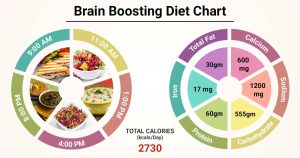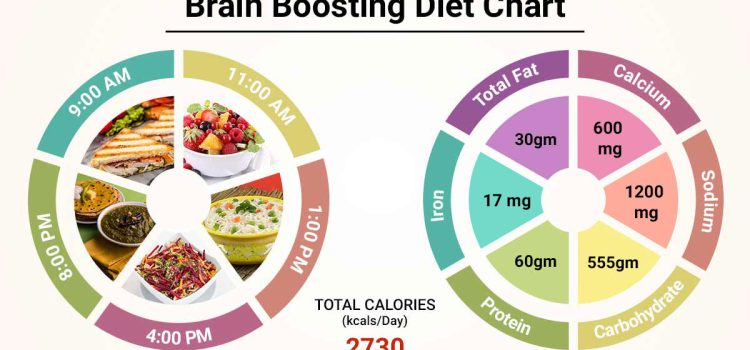
In our quest for overall well-being, we often focus on physical health and fitness while overlooking a crucial aspect of our lives: mental health. The food we consume not only impacts our physical health but also plays a significant role in our mental well-being and cognitive function. In this article, we’ll explore the intricate connection between our food choices and their effects on our mental health and cognitive performance.
The Brain-Boosting Diet
Our brain, like any other organ, requires proper nourishment to function optimally. Here are some essential nutrients and foods that contribute to mental health and cognitive function:
1. Omega-3 Fatty Acids
Omega-3 fatty acids, found in fatty fish (salmon, mackerel, and sardines), flaxseeds, and walnuts, are essential for brain health. They support memory, mood, and cognitive function.
2. Antioxidants
Foods rich in antioxidants, such as berries, dark chocolate, and leafy greens, protect brain cells from oxidative stress and improve cognitive function.

3. B Vitamins
B vitamins, particularly B6, B9 (folate), and B12, are crucial for brain health. They play a role in neurotransmitter production and cognitive development. Sources include whole grains, leafy greens, and lean meats.
4. Protein
Protein-rich foods like lean meats, fish, eggs, and legumes provide amino acids that are the building blocks of neurotransmitters, enhancing mood and cognitive function.
5. Complex Carbohydrates
Whole grains, fruits, and vegetables provide a steady supply of glucose to the brain, supporting concentration and mental clarity.
6. Probiotics
A healthy gut contributes to a healthy mind. Foods rich in probiotics, such as yogurt and kefir, support the gut-brain connection and mental well-being.
The Gut-Brain Connection
The gut and the brain are intricately connected through the gut-brain axis. Research has shown that the composition of gut bacteria can influence mood, cognition, and mental health. A diet rich in fiber, prebiotics, and probiotics can help maintain a healthy gut microbiome, positively affecting mental well-being.
Mindful Eating for Mental Health
Beyond specific nutrients, adopting a mindful approach to eating can have a profound impact on mental health:
1. Enjoy a Varied Diet
Eating a variety of foods ensures you get a broad range of nutrients that support brain health.
2. Stay Hydrated
Dehydration can impair cognitive function and mood. Make sure you drink enough water throughout the day.
3. Control Sugar Intake
High sugar consumption has been linked to mental health issues. Opt for natural sweeteners like honey or fruit to satisfy your sweet tooth.
4. Limit Processed Foods
Processed foods often contain additives and preservatives that can negatively affect mental health. Focus on whole, unprocessed foods.
5. Eat Mindfully
Practice mindful eating by savoring each bite and paying attention to your body’s hunger and fullness cues.
6. Balance Your Macronutrients
A well-balanced diet that includes a mix of carbohydrates, proteins, and healthy fats provides the brain with the energy it needs to function optimally.
The Impact of Diet on Mental Health
Diet can significantly influence mental health and cognitive function:
1. Depression and Anxiety
Studies have shown that a diet rich in whole foods, such as the Mediterranean diet, can reduce the risk of depression and anxiety.
2. Cognitive Decline
A diet high in antioxidants, omega-3 fatty acids, and B vitamins has been associated with a reduced risk of cognitive decline and dementia.

3. ADHD and Concentration
Some individuals with ADHD may benefit from diets low in artificial additives and high in omega-3 fatty acids.
Conclusion
Nourishing your brain through a well-balanced diet can have a transformative impact on your mental health and cognitive function. The foods you choose to consume play a pivotal role in how you think, feel, and navigate the complexities of daily life. By embracing a brain-boosting diet and mindful eating habits, you can embark on a journey toward improved mental well-being and enhanced cognitive performance. Remember, food is not just fuel for the body; it’s also fuel for the mind.










